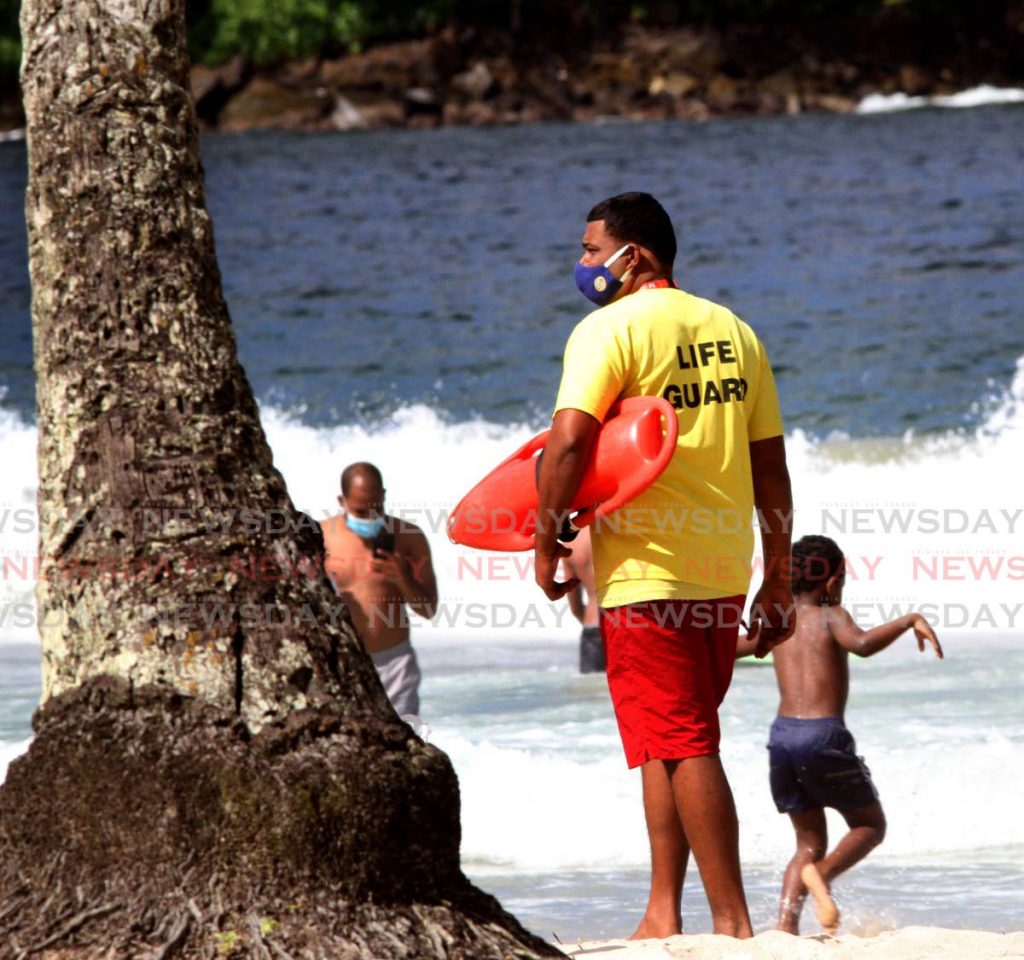Lifeguards: Help us prevent drownings

President of the lifeguard branch of the National Union of Government and Federated Workers (NUGFW) Augustus Sylvester has called on the Ministry of National Security to equip lifeguards to prevent drownings at beaches.
His plea came after the drowning of Shivanie Ramkarran, 24, of Barrackpore. She died on Monday in the water off Double Bridge, Guayaguayare.
This was the second drowning in Guayaguayare over the holiday long weekend. On Sunday Stephen Marcano, 39, died while trying to save relatives who also got into difficulty in the water.
Sylvester said beach responsibility was everybody’s business, but believes the necessary equipment and adequate staffing would go a long way in minimising and preventing future incidents.
He said having 115 lifeguards to service ten beaches was unacceptable and showed the level of importance the ministry placed on this aspect of security.
“We are terribly short-staffed. We are lacking manpower.
"In the last 11 years we have trained and certified 60 people to come on staff, but they cannot be hired because of a lack of funding. We need a minimum of 200 lifeguards if we are to effectively function as a unit.”
Sylvester added that Mayaro in particular was challenging because the beach spanned over 18 miles and people do not bathe in the designated areas.
Having to patrol those areas was extremely difficult, he said, since the lifeguards do not have transport.
“All we have is the rescue cans. We have no motorised equipment like jet skis, rescue boats, ambulances or ATVs (all-terrain vehicles) to patrol the beaches.
"A lot of the lifeguard towers are not functioning and in need of desperate repairs.
“(In) places like Mayaro, where the lifeguards have to cover a vast amount of beach, it is imperative to have equipment to be effective.”
Sylvester claimed the Ministry of National Security has ignored the lifeguards' concerns and requests for meetings, equipment and funding.
He said with people spending more time in the country because of the covid19 pandemic, beaches were more likely to be visited for recreation.
“We are totally ignored and abandoned by the minister (Stuart Young). He promised to meet with us, but this has not happened.
“It seems as though it is only the police getting assistance under this ministry, but yet crime increasing.”
Education officer Wayne Drysdale said one of the biggest challenges was that people visiting beaches should be mindful of their surroundings and the do’s and don'ts of bathing in the sea.
“Because of the beach houses, many people just come out and bathe in the area, not fully understanding the nature of the water in terms of currents and tides. This is why we have designated bathing areas.”
He said a lack of funding has prevented an awareness campaign
Water safety should be added to the school curriculum, he suggested, as part of disaster preparedness, given the vulnerability small islands face because of climate change.
“Unfortunately, there are too many people who are unaware of the dangers of the ocean, what happens when the tide changes.”
Drysdale advised beachgoers to look for: dangerous areas where there are rip currents; brown water; holes in the sand; and shifting sand.
He added that people should wait at least an hour before going into the water after a meal, and to minimise how much alcohol they drank if they planned to swim in the sea.

Comments
"Lifeguards: Help us prevent drownings"